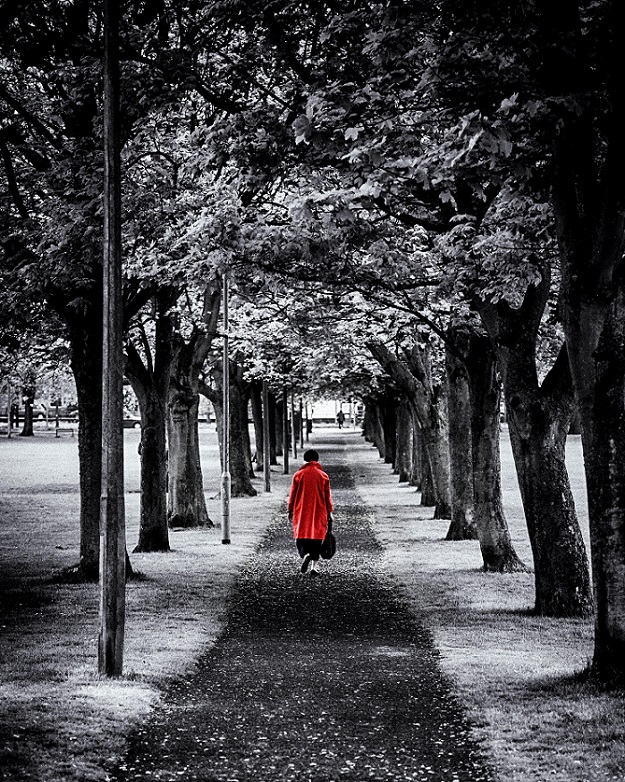
Steven J. Corbett, George Mason University
Beyond Dichotomy explores how research on peer tutoring one-to-one and in small groups can inform our work with students in writing centers and other tutoring programs, as well as in writing courses and classrooms.
Chauna Ramsey, Columbia Gorge Community College
This is a collection of cumulative units of study for conventional errors common in student writing.
Foundational Practices of Online Writing Instruction addresses the questions and decisions that administrators and instructors most need to consider when developing online writing programs and courses.
Melissa Tombro, The Fashion Institute of Technology
Teaching Autoethnography: Personal Writing in the Classroom is dedicated to the practice of immersive ethnographic and autoethnographic writing that encourages authors to participate in the communities about which they write. This book draws not only on critical qualitative inquiry methods such as interview and observation, but also on theories and sensibilities from creative writing and performance studies, which encourage self-reflection and narrative composition.
Carol Burnell, Clackamas Community College
Monique Babin, Clackamas Community College
Susan Pesznecker, Portland State University
Written by five college reading and writing instructors, this interactive, multimedia text draws from decades of experience teaching students who are entering the college reading and writing environment for the very first time.
The Writing Spaces Web Writing Style Guide was created as a crowdsourcing project of Collaborvention 2011: A Computers and Writing Unconference. College writing teachers from around the web joined together to create this guide (see our Contributors list). The advice within it is based on contemporary theories and best practices. While the text was originally written for students in undergraduate writing classes, it can also be a suitable resource for other writers interested in learning more about writing for the web.
Dr Charlie Lowe, Grand Valley State University
Dr Pavel Zemliansky, James Madison University
Volumes in Writing Spaces: Readings on Writing are collections of Creative Commons licensed essays for use in the first year writing classroom, all written by writing teachers for students.
Dr. Charlie Lowe, Grand Valley State University
Dr. Pavel Zemliansky, James Madison University
Volumes in Writing Spaces: Readings on Writing are collections of Creative Commons licensed essays for use in the first year writing classroom, all written by writing teachers for students.

Introductory composition with an emphasis on essay writing in common rhetorical styles
Composition I focuses on principles of writing, critical reading and essay composition using rhetorical styles common in college-level writing (narrative, example/illustration, compare/contrast, cause-and-effect, argument).
![]()
Author: Amy Guptill
Writing in College is designed for students who have largely mastered high-school level conventions of formal academic writing and are now moving beyond the five-paragraph essay to more advanced engagement with text. It is well suited to composition courses or first-year seminars and valuable as a supplemental or recommended text in other writing-intensive classes. It provides a friendly, down-to-earth introduction to professors’ goals and expectations, demystifying the norms of the academy and how they shape college writing assignments. Each of the nine chapters can be read separately, and each includes suggested exercises to bring the main messages to life.
Robin Jeffrey, Klamath Community College
This writer’s reference condenses and covers everything a beginning writing student should need to successfully compose college-level work.
Martine Courant Rife, Lansing Community College
Shaun Slattery, DePaul University and the University of South Florida Polytechnic
The editors of Copy(write): Intellectual Property in the Writing Classroom bring together stories, theories, and research that can further inform the ways in which we situate and address intellectual property issues in our writing classrooms.
Gerdi Quist, University College London
Untangling the various approaches to language teaching and their history, Gerdi Quist maps recent thinking in language studies at university. Using an interdisciplinary theoretical framework, drawn from educational philosophy, cultural studies, intercultural studies and language pedagogy, the author discusses the many tensions and currents in contemporary language teaching.
Melissa Tombro, The Fashion Institute of Technology
Teaching Autoethnography: Personal Writing in the Classroom is dedicated to the practice of immersive ethnographic and autoethnographic writing that encourages authors to participate in the communities about which they write. This book draws not only on critical qualitative inquiry methods such as interview and observation, but also on theories and sensibilities from creative writing and performance studies, which encourage self-reflection and narrative composition.
Mike Duncan, University of Houston-Downtown
Star M. Vanguri, Nova Southeastern University
In The Centrality of Style, editors Mike Duncan and Star Medzerian Vanguri argue that style is a central concern of composition studies even as they demonstrate that some of the most compelling work in the area has emerged from the margins of the field.
In WAC and Second-Language Writers, the editors and contributors pursue the ambitious goal of including within WAC theory, research, and practice the differing perspectives, educational experiences, and voices of second-language writers.
Working with educators at all academic levels involved in WAC partnerships, the authors and editors of this collection demonstrate successful models of collaboration between schools and institutions so others can emulate and promote this type of collaboration.
Kathy Harrington, London Metropolitan University
Mary Lea, Open University
Sally Mitchell, Queen Mary University of London
Theresa Lillis, The Open University
The editors and contributors to this collection explore what it means to adopt an "academic literacies" approach in policy and pedagogy.